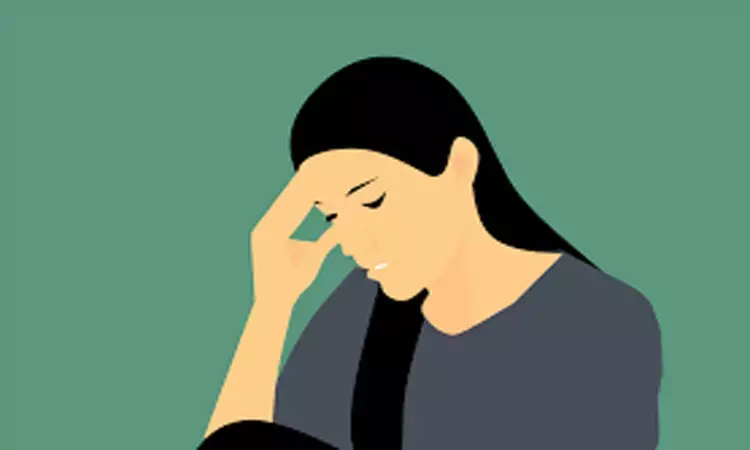- Home
- Medical news & Guidelines
- Anesthesiology
- Cardiology and CTVS
- Critical Care
- Dentistry
- Dermatology
- Diabetes and Endocrinology
- ENT
- Gastroenterology
- Medicine
- Nephrology
- Neurology
- Obstretics-Gynaecology
- Oncology
- Ophthalmology
- Orthopaedics
- Pediatrics-Neonatology
- Psychiatry
- Pulmonology
- Radiology
- Surgery
- Urology
- Laboratory Medicine
- Diet
- Nursing
- Paramedical
- Physiotherapy
- Health news
- Fact Check
- Bone Health Fact Check
- Brain Health Fact Check
- Cancer Related Fact Check
- Child Care Fact Check
- Dental and oral health fact check
- Diabetes and metabolic health fact check
- Diet and Nutrition Fact Check
- Eye and ENT Care Fact Check
- Fitness fact check
- Gut health fact check
- Heart health fact check
- Kidney health fact check
- Medical education fact check
- Men's health fact check
- Respiratory fact check
- Skin and hair care fact check
- Vaccine and Immunization fact check
- Women's health fact check
- AYUSH
- State News
- Andaman and Nicobar Islands
- Andhra Pradesh
- Arunachal Pradesh
- Assam
- Bihar
- Chandigarh
- Chattisgarh
- Dadra and Nagar Haveli
- Daman and Diu
- Delhi
- Goa
- Gujarat
- Haryana
- Himachal Pradesh
- Jammu & Kashmir
- Jharkhand
- Karnataka
- Kerala
- Ladakh
- Lakshadweep
- Madhya Pradesh
- Maharashtra
- Manipur
- Meghalaya
- Mizoram
- Nagaland
- Odisha
- Puducherry
- Punjab
- Rajasthan
- Sikkim
- Tamil Nadu
- Telangana
- Tripura
- Uttar Pradesh
- Uttrakhand
- West Bengal
- Medical Education
- Industry
Eptinezumab also Effective in Acute migraine Attacks besides prevention: JAMA

Eptinezumab also Effective in Treating Acute migraine Attacks besides prevention
According to a recent research, it has been found out that among patients eligible for preventive migraine therapy, treatment with intravenous eptinezumab vs placebo during an active moderate to severe migraine attack shortened time to headache and migraine symptom freedom.
The study is published in the JAMA Network
Intravenous eptinezumab, an anti–calcitonin gene-related peptide antibody, is approved for migraine prevention in adults. It has established onset of preventive efficacy on day 1 after infusion.
Hence, Paul K. Winner and colleagues from the Palm Beach Headache Center, West Palm Beach, Florida carried out the present study with the objective to evaluate the efficacy of and adverse events related to eptinezumab when initiated during a migraine attack.
Participants (aged 18-75 years) with a greater than 1-year history of migraine and migraine on 4 to 15 days per month in the 3 months prior to screening were treated during a moderate to severe migraine attack.
Eptinezumab, 100 mg was administered to 238 individuals, or placebo to 242, administered intravenously within 1 to 6 hours of onset of a qualifying moderate to severe migraine.
Co-primary efficacy end points were time to headache pain freedom and time to absence of most bothersome symptom (nausea, photophobia, or phonophobia). Key secondary end points were headache pain freedom and absence of most bothersome symptom at 2 hours after start of infusion. Additional secondary end points were headache pain freedom and absence of most bothersome symptom at 4 hours and use of rescue medication within 24 hours.
The study revealed the following findings-
a. Of 480 randomized and treated patients (mean age, 44 years; 84% female), 476 completed the study. b. Patients treated with eptinezumab vs placebo, respectively, achieved statistically significantly faster headache pain freedom (median, 4 hours vs 9 hours; hazard ratio, 1.54 [P < .001]) and absence of most bothersome symptom (median, 2 hours vs 3 hours; hazard ratio, 1.75 [P < .001]).
c. At 2 hours after infusion, in the respective eptinezumab and placebo groups, headache pain freedom was achieved by 23.5% and 12.0% (between-group difference, 11.6% [95% CI, 4.78%-18.31%]; odds ratio, 2.27 [95% CI, 1.39-3.72]; P < .001) and absence of most bothersome symptom by 55.5% and 35.8% (between-group difference, 19.6% [95% CI, 10.87%-28.39%]; odds ratio, 2.25 [95% CI, 1.55-3.25]; P < .001).
d. Results remained statistically significant at 4 hours after infusion.
e. Statistically significantly fewer eptinezumab-treated patients used rescue medication within 24 hours than did placebo patients (31.5% vs 59.9%, respectively; between-group difference, −28.4% [95% CI, −36.95% to −19.86%]; odds ratio, 0.31 [95% CI, 0.21-0.45]; P < .001).
f. Treatment-emergent adverse events occurred in 10.9% of the eptinezumab group and 10.3% of the placebo group; the most common was hypersensitivity (eptinezumab, 2.1%; placebo, 0%).
g. No treatment-emergent serious adverse events occurred.
Therefore, the authors concluded that "among patients eligible for preventive migraine therapy experiencing a moderate to severe migraine attack, treatment with intravenous eptinezumab vs placebo shortened time to headache and symptom resolution. Feasibility of administering eptinezumab treatment during a migraine attack and comparison with alternative treatments remain to be established."
Dr. Nandita Mohan is a practicing pediatric dentist with more than 5 years of clinical work experience. Along with this, she is equally interested in keeping herself up to date about the latest developments in the field of medicine and dentistry which is the driving force for her to be in association with Medical Dialogues. She also has her name attached with many publications; both national and international. She has pursued her BDS from Rajiv Gandhi University of Health Sciences, Bangalore and later went to enter her dream specialty (MDS) in the Department of Pedodontics and Preventive Dentistry from Pt. B.D. Sharma University of Health Sciences. Through all the years of experience, her core interest in learning something new has never stopped. She can be contacted at editorial@medicaldialogues.in. Contact no. 011-43720751
Dr Kamal Kant Kohli-MBBS, DTCD- a chest specialist with more than 30 years of practice and a flair for writing clinical articles, Dr Kamal Kant Kohli joined Medical Dialogues as a Chief Editor of Medical News. Besides writing articles, as an editor, he proofreads and verifies all the medical content published on Medical Dialogues including those coming from journals, studies,medical conferences,guidelines etc. Email: drkohli@medicaldialogues.in. Contact no. 011-43720751


